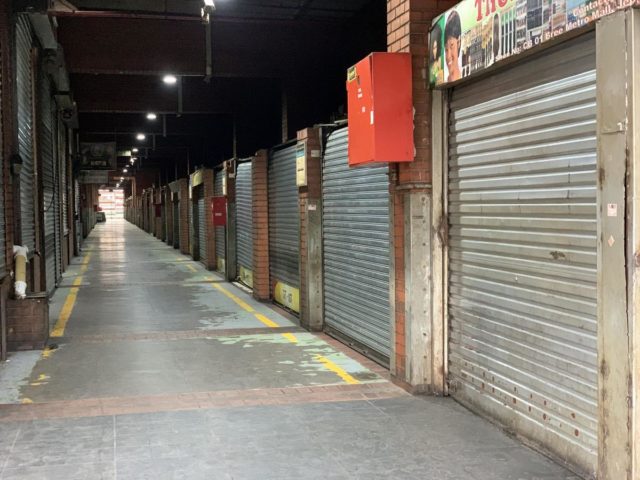The spectre of a hard lockdown again looms over Gauteng as the government’s National Coronavirus Command Council (NCCC) meets this weekend to decide how to stem the spike of cases across the province.
Gauteng Health MEC Dr Bandile Masuku hinted that an intermittent, harder lockdown could be an option in curbing Gauteng’s infection rate.
It is a measure that has been introduced recently in Melbourne, Australia and Israel.
In Melbourne, suburbs that have become coronavirus hot spots have gone into localised lockdown.
But it is a strategy some believe might not work in South Africa’s most populous province.
The concern is the effect it is likely to have on an already sputtering economy and a population that has lockdown fatigue.
“The use of intermittent strict lockdowns definitely has merit,”
said Dr Sean Muller, a senior lecturer at the University of Johannesburg’s school of economics.
“The problem is that the initial, lengthy level 5 lockdown has arguably used up whatever little economic and fiscal resources we had, so the government is in a difficult position.
“Some estimates indicate that Gauteng contributes about a third of the country’s economic activity so the impact on the national economy would be significant,” he added.
Economy expert Lumkile Mondi does not believe level 5 regulations will be reimposed.
“I don’t see us going back to
level 5. The lockdown was to allow the government and stakeholders
to deploy infrastructure (hospitals, personal protective equipment, personnel).
“The lockdown was also undermined by many South Africans who continue to defy the rules. Government has played its part. It is now in our hands.
“The NCCC has lost credibility and that is why illicit tobacco is everywhere and people walk around without masks.”
Professor Alex van den Heever, who holds the chair of social security systems administration and management studies at Wits University, said that a more nuanced, smarter strategy was needed rather than a hard lockdown.
“Lockdown tries to freeze people in their houses, what it does not do is deal with the unsafe areas,” he said, explaining that “super spreader sites” had to be identified in communities.
This could be a supermarket, taxis or a site where people congregate.
Reducing the infection rate could come from improving ventilation at a site. Van den Heever pointed out that the simple act of a taxi driving with its windows open to allow the circulation of air would drastically decrease the Covid-19 infection rate.
“Localised lockdown is the wrong language,” says Van den Heever. “It should be localised strategies, that are different to where the clusters are.
“You need a concentration of tracing, and a focus on super spreader events so you understand and target them, without closing them down.”
Jack Bloom, the DA’s Gauteng shadow health MEC, believes that the province’s demographic makes it hard for a localised lockdown. Gauteng residents travel widely across the province.
“We have already had a long lockdown, and people would need to buy into a new lockdown,” he said.
“What we should be doing
is protecting the vulnerable, like
the aged.”
The IFP yesterday, however, called for the resumption of lockdown level 5, saying that the lifting of restrictions under levels 4 and 3 had placed citizens in harm’s way.
President Cyril Ramaphosa yesterday said that another hard lockdown was not being considered for now. He said the government would rather consider other options in fighting the pandemic.
Also yesterday, Ramaphosa wrote to Parliament to inform it of his decision to extend the deployment
of 20000 troops to September so
they can assist in the fight against
the virus.








